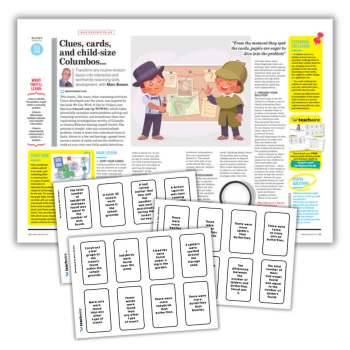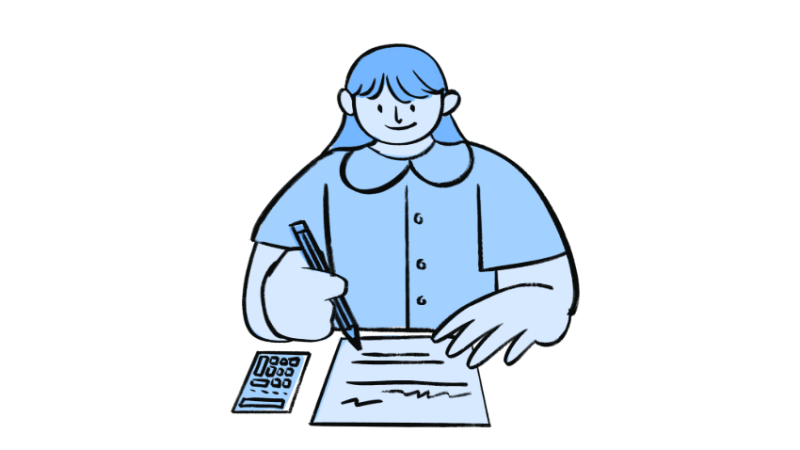Time To Get Real – Why There Should Always Be A Place For Practical Problems In Maths Lessons

To be considered truly competent mathematicians, young people need the ability to think critically and tackle tangible problems, argues Stephen Hull…

- by Stephen Hull

Maths is truly exceptional. Not only is it a creative discipline in its own right, but it enables us to explore space, construct bridges, create the latest electronic gadgets and develop ground-breaking scientific instruments like the Large Hadron Collider.
In essence, it underpins the world around us and has helped humankind advance at an astonishing pace – particularly in the last half century.
Maths is also entrenched in the everyday. We use maths for planning journeys to see loved ones; to assess car insurance policies; figure out what we stand to gain and lose as part of a business decision; and to interrogate the latest health-related claims in the media. Maths and quantified data are furthermore unavoidable in today’s workplace. In almost all professions, there is a need to base decisions on solid evidence.
Being numerate is not just for the privileged – it is for everyone. It is liberating, empowering and enables us to make informed decisions about our lives and the lives of others.
Practical applications
However, the challenge for curriculum developers and teachers is to enable students to see how maths can help find ways forward in many real-life situations, and show them how to select the maths they need.
Mathematician and entrepreneur Conrad Wolfram describes such problem solving in four steps:
1. First, you are faced with, or pose, a real-life question or problem 2. Then you must turn it into a maths problem – this is a process of abstraction into numbers or mathematical models 3. Next, you manipulate the numbers or work on the model 4. Finally, you turn the result back to the real world and see whether you got it right
He argues that maths in education tends to get stuck on step three. Ask yourself, what’s more likely to help a student to understand the complex calculation part – only doing it in the abstract, or also seeing it having a tangible effect? For some students, an initial grounding in the real world can be trigger for a taking maths to a higher level.
Luckily, there’s a growing consensus developing about the need to develop critical thinking in young people, and progressive steps are taking place. Recent reforms in England have seen the explicit introduction of critical thinking and problem solving skills into maths curricula and exams. Many innovative, skillful teachers already provide students with exactly what they need for life ahead.
With the curriculum is changing, it’s a chance to ensure all pupils are able to leave school fully prepared for life in the 21st century.
Fully prepared
In today’s dynamic and ever-changing global economy, deep knowledge and effective, adaptable expertise are needed to succeed. More than ever, students are at a disadvantage if they have to learn all the skills they need on entering the workplace. But students will thrive if their learning at school enables them to grapple with complex problems and discover how to shape their own – and their societies’ – destinies.
There are challenges ahead in maths, and indeed in all subjects. It’s easy to assess, for example, how many of your students can find the correct answer to a list of problems. It’s much more difficult to assess the plethora of skills necessary to engage with a complex, real-life question.
Let’s say you’ve asked students to work in groups to make a business case for their school to invest in a new sports centre. They could compare builders’ quotes, assess potential income streams, judge environmental effects and use computer modelling to show the community what it would look like.
These steps will all draw on mathematical knowledge, as well as interpersonal and thinking skills – but is it possible to identify one pupil’s level of understanding, progress and contribution to the overall group effort?
Despite the challenges, the educational opportunities are electrifying, with teachers uniquely placed to unlock a world of potential in young people.
With this in mind, the British Council has developed the Connecting Classrooms programme. The programme was recently re-launched to provide teachers in all subjects opportunities to develop their teaching of students’ core skills, such as critical thinking and problem solving, which have not always been specified in the curriculum. There’s even a course specifically for maths teachers in England, which is currently being piloted in partnership with the National Centre for Excellence in the Teaching of Mathematics.
The new maths-focused course will be available nationwide from Autumn 2016. It’s free to attend – and since it’s being provided by the British Council, any teachers who take the course will also be eligible for £3,000 in grants to travel overseas and share their work with schools in other countries.
Connecting Classrooms FAQ
What are the core skills and why do we need them? The core skills encompass a range of competencies that are critical now and in the future. This includes ways of working (such as communication and collaboration), and ways of thinking (critical thinking, problem solving, creativity and innovation), but also tools for working (digital literacy), and living as responsible, well rounded global citizens.
Why should teachers get involved? The new Connecting Classrooms offer focuses on building global awareness and cross-cultural learning. In the last three years alone, the programme has enabled over 28,000 teachers around the world to benefit from professional development training, with over 70% of schools reporting improvements to global citizenship teaching practice.
After the training and an opportunity to meet and share practice with counterparts overseas – all fully funded – many teachers feel that the experience has equipped them with additional skills and expertise that they didn’t have before.
How long do the courses take? Face to face courses Each package addresses one of the six core skills. They are taught over a 8-12 week period, with a face-to-face session taking place at the beginning and end, as well as webinars and online support throughout.
Online courses Online study, 8-10 hours; optional reading, 4 hours; school-based activities, at least 4 weeks (non-consecutive)
What courses are available? A combination of different courses are available in different parts of the country including the following:
• Digital literacy • Creativity and imagination • Student leadership • Collaboration and communication • Citizenship • Critical thinking and problem solving
Stephen Hull is senior project manager at the British Council
Further details about the Connecting Classrooms opportunities available in your local area can be found here; for more information, follow @Schools_On_Line










